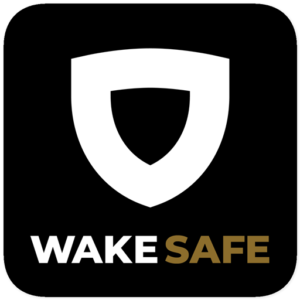Common Terms
Click a term below for more information.
Adaptive Resolution
Adaptive Resolution is one of two formal processes, brought on by a claimant submitting a formal complaint to Title IX alleging sexual harassment or sexual misconduct, which is intended to allow the claimant and respondent to provide information about the alleged incident(s) and to potentially reach a mutually agreeable resolution in lieu of a formal hearing process. Adaptive Resolution may not be a process appropriate for the resolution of all formal complaints. In an Adaptive Resolution process, both the claimant and the respondent must mutually and voluntarily agree to participate in the process. The Adaptive Resolution process is facilitated by an appointed AR facilitator.
Consent
Consent is a freely given, reversible, informed, enthusiastic, specific, ongoing, and mutual agreement between participants agreeing to engage in interactions together. It applies to all interactions with others, sexual, non-sexual, technology interactions, etc. Consent may be communicated verbally, non-verbally, or both. It is important to remember that a person can change their mind and consent can be withdrawn at any point. Consent is not coerced and cannot be obtained by intimidation, manipulation, force, or through the abuse of a position of power or trust, or by using drugs or alcohol. Consent is not assumed and needs to be clear and explicit. It can not be assumed from silence, lack of physical resistance, current or previous sexual relationships, or consent given during previous interactions. Consent can’t be determined by physiology or how a body may naturally respond to arousal. Consent cannot be given if someone is incapacitated by drugs, alcohol, or other substances. Consent can never be provided by a person whose age is younger than the legal age of consent for that state (legal age of consent is 16 in North Carolina) or someone with an intellectual disability. However, just because someone is of the age of consent does not automatically ensure there is consent between two participants.
Confidential Resources
Confidential resources are campus resources that do not have mandatory reporting requirements to the University’s Title IX Coordinator and law enforcement. Confidential resources include the Safe Office, University Counseling Center, Deacon Health, and the Office of the Chaplin.
Dating Violence
Dating Violence is a type of relationship violence where there is violence committed by a person who has been in a romantic or intimate relationship with someone. Wake Forest University’s Title IX & Non-Title IX Sexual Misconduct Policy determines the existence of a dating relationship based on the consideration of the length of the relationship, the type of relationship, and the frequency of interaction between the persons involved in the relationship.
Formal Complaint
A formal complaint is a document filed by a claimant or signed by the Title IX Coordinator alleging sexual harassment or sexual misconduct against a respondent, and is requesting that Wake Forest investigate this allegation.
Healthy Relationships
Healthy relationships are relationships that practice healthy communication, healthy boundaries, mutual respect, and support for one another. Healthy relationships make individuals involved feel good about themselves and feel seen, safe, heard, and respected. A healthy relationship doesn’t mean there is an absence of conflict throughout the relationship; rather, when conflict is present the individuals within the relationship are able to utilize healthy communication, healthy boundaries, mutual respect, and support for one another to work through and/or resolve the conflict.
Interpersonal Violence
Interpersonal Violence is a broad umbrella term used to characterize acts of abuse or aggression that occurs in a romantic relationship or has aspects of a sexual nature between two individuals who may have previously not been in a romantic relationship. Acts of interpersonal violence can occur on a broad spectrum of severity and frequency. Terms that may fall under the Interpersonal Violence umbrella are intimate partner violence, dating violence, sexual harassment, sexual misconduct, sexual assault, rape, stalking, catcalling, groping, sodomy, sexual exploitation, nonconsensual recording of sexual activity, and gender-based harassment.
Intimate Partner Violence
Intimate partner violence is abuse or aggression that occurs in a romantic relationship. “Intimate partner” refers to both current and former spouses and dating partners. Similar to interpersonal violence, intimate partner violence can occur on a broad spectrum of severity and frequency.
No Contact Orders
No contact orders are typically mutual, two-way agreements to block communication between two parties who are both enrolled at the University. No contact orders block direct communication (such as through verbal, written, email, or text message means), indirect communication (such as through social media, online postings and/or personal references), and attempting to reach the other party through a third party to transmit communication back to the other person. A no contact order does not restrict a party’s physical movement or proximity to the other party, and will not prohibit the two individuals from being in the same location on campus at the same time. A no contact order is considered a supportive measure and can be attained through Title IX.
Physical Violence
Physical violence is when a person hurts or tries to hurt a partner by hitting, kicking, or using another type of physical force.
Rape
Rape is a specific type of sexual assault, defined as the attempted or completed penetration, no matter how slight, or the vagina or anus with any body part or object, or oral penetration by a sex organ of another person, without consent of that person. It is important to note that in the state of North Carolina, the legal definition of rape refers to forced penetration of the vagina. In North Carolina, forced penetration of the anus would legally be considered a “sexual offense”. However, we recognize this legal definition is inherently heteronormative and does not align with the Safe Office and Interpersonal Violence Prevention Coordinator’s interpretation of the gender-spectrum inclusive needs of a definition of rape.
Relationship Violence
Relationship Violence occurs when one person uses a pattern of behaviors to control the other person(s) with whom they are involved in any type of relationship (romantic, roommate, friend, family, etc.). Relationship violence can take on many forms, such as psychological, emotional, physical, financial, or sexual abuse.
Safety Plan
A safety plan is an individualized, practical plan to improve your safety if you feel you may be in an unhealthy or abusive relationship, if you feel the relationship may escalate to be unsafe, and/or if you have experienced relationship violence or sexual assault.
Sexual Assault
Sexual Assault is a type of sexual violence and sexual harassment which includes any sexual act or sexual contact (direct or indirect) directed against another person, without the consent of the person, including instances where the person is incapable or unable to freely give consent. Sexual Assault can occur between individuals of the same or different sexes and/or genders. Sexual Assault occurs through force, which can be on a spectrum of intensity and can include the use of verbal, physical or emotional pressure or manipulation, substances, threats, weapons, coercion and/or the use of alcohol or other drugs. Types of sexual assault can include rape, sodomy, sexual assault with an object, fondling, incest, statutory rape, voyeurism, and exhibitionism.
SART (Sexual Assault Response Team)
A team of health care providers (e.g. forensic nurses, emergency room doctors, law enforcement, victim advocates, and mental health professionals) that are specially trained in responding to victims of sexual assault. This team works together to ensure that sexual assault survivors receive comprehensive medical attention, evidence collection examinations, emotional support, and resource information.
Sexual Harassment
- The Safe Office and IPV Prevention Coordinator broadly define Sexual Harassment as the misuse of power, involving two people of perceived unequal authority and status, in a situation that has sexual overtones. Sexual harassment can manifest in a range of behaviors that bring unwanted, unwelcome attention directed toward a person(s) or group(s) sexuality or sexual identity.
- The Wake Forest University Title IX & Non Title IX Sexual Misconduct Policy more narrowly defines Sexual Harassment as:
- an employee of Wake Forest conditioning the provision of an aid, benefit, or service on an individual’s participation in unwelcome sexual conduct (commonly referred to quid pro quo harassment);
- unwelcome conduct determined by a reasonable person to be so severe, pervasive, and objectively offensive that it effectively denies a person equal access to Wake Forest’s Education Program or Activity; or
- sexual assault
Sexual Violence
Sexual Violence is forcing or attempting to force a partner to take part in a sex act, sexual touching, or a non-physical sexual event (e.g., sexting) when the partner does not or cannot consent. Sexual violence can take on many forms, including rape, incest, child sexual abuse, interpersonal violence, intimate partner violence, sexual exploitation, human trafficking, unwanted sexual contact, sexual harassment, exhibitionism, and voyeurism.
Stalking
Stalking is a pattern of repeated, unwanted attention and contact by a person that causes fear or concern for one’s own safety or the safety of others. Stalking can take place in person or through online or digital means. The legal definition of stalking requires two or more acts, including, but not limited to, acts in which the stalker directly, indirectly, or through third parties, by any action, method, device, or means, follows, monitors, observes, surveils, threatens, or communicates to or about a person, or interferes with a person’s property, leading to “substantial emotional distress” by the person experiencing stalking. “Substantial emotional distress” means significant mental suffering or anguish that may, but does not necessarily require, medical or other professional treatment or counseling.
Supportive Measures
Supportive measures are non-disciplinary, non-punitive, individualized services offered as appropriate and as reasonably available to restore or preserve equal access to education and activities for students who have experienced harm in some way. Supportive measures can be attained without filing a formal Title IX complaint and can be accessed through the Safe Office, Title IX, and the Office of Student Conduct.
Wake Safe App
Wake Safe is a free personal mobile application for Wake Forest University students, staff, faculty, visitors, and surrounding community members to use your cell phone as a personal security device. The app allows direct access to campus police, 911 emergency services, emergency location sharing, social escape, and a peer-to-peer Friend Walk tool.

Need to leave the website quickly?
Safe Office
Need immediate assistance?
24/7 Confidential Support Line
Have a non-urgent question?
Visit Us!
Wake Safe App

- Mobile BlueLight: send your location to and call WFU PD simultaneously.
- Friend Walk: sends your location in real-time to a friend so they can watch you as you walk to your destination!
- Social Escape: allows you to get out of a tough social situation by calling you and giving you an excuse to leave.
- We Are Wake: a comprehensive call to care for the mental health of all students.
- Campus Support Resources
